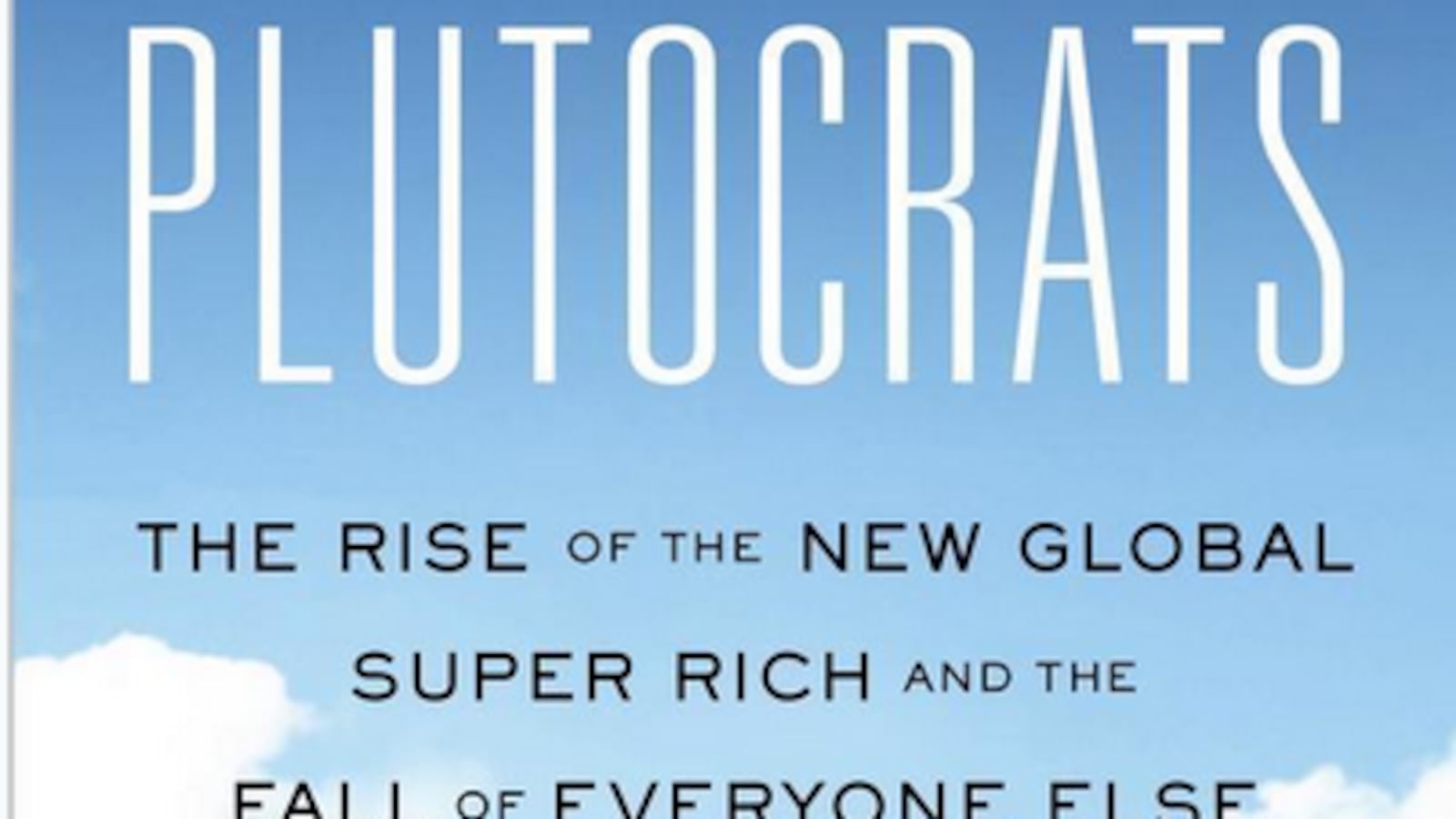
We live in an accordion economy, as I'm not the first to say.
The college-educated upper third are pulling away from the non-college lower two-thirds.
The professional one-tenth are pulling away from the rest of the college-educated.
The affluent 1% are pulling away from the rest of the professionals.
Yet the most dramatic acceleration of all is happening within the 1%, that subgroup of American families who report taxable income of $350,000 or more.
The corporate chiefs of the top one-tenth of 1% have pulled away from the vice presidents and lawyers and surgeons of the the lower 1%.
And above the corporate chiefs are the the uppermost stratum, the 1% of the 1%, whose rate of gain since 1980 has recreated in this new century the concentrated wealth once supposed to have vanished with the Great Crash and New Deal. This new upper class is the subject of Chrystia Freeland's deservedly acclaimed new book, Plutocrats.
Freeland's ambitious project is to describe these plutocrats on a global scale: not only American, but also Russian and Chinese - who wield, if possible, even more power. "Power" is the apt word. "Plutocracy," let's not forget, is a description of a mode of government, not a mode of consumption or production. A plutocrat is not merely a very wealthy man. A plutocrat is one who rules by virtue of his wealth.
The questions presented by the lower folds in the accordion are economic and social. Does an economy become more prone to asset bubbles when the benefits of productivity growth accrue almost entirely to the top 2% or 3% of the population? Does intensifying inequality of result lead to decreasing equality of opportunity? But at the summit, the concentration of vast wealth in very few hands raises questions that are first and foremost political.
These are the questions Freeland invites us to consider. "[T]heir goal is to guide the state," Freeland remarks of the billionaires she studies. In the realm of philanthropy - the context in which this remark occurs - plutocratic guidance can lead to one person imposing oftentimes wrongheaded preferences on others: "not everyone believes in more testing in schools or the particular approaches to AIDS care in Africa." (p. 76) In the realm of politics, however, plutocracy can buy itself more substantial rewards.
Those rewards are most in evidence in the political systems of China and Russia, the former communist societies now turned into a hideous parody of capitalist order. Yet they are evident in the democratic United States as well.
"Within the 1 percent, the richer you are, the lower your effective tax rate: in 2009, the top 1 percent paid over 23 percent of their income in income tax, the top 0.1 percent paid just over 21 percent, and the top four hundred taxpayers paid less than 17 percent." (pp. 78-79.)
One of Freeland's most arresting observations is that the trend to hyper-inequality begets class conflict - not between rich and poor - but (quoting the Swedish expert on Russia, Anders Aslund) between "the millionaires and the billionaires."
This conflict asserted itself in this past month's debates over revenue measures. There's a lot to be said in favor of lowering tax rates by eliminating tax deductions. Yet it's also true that the favored tax reform of the Mitt Romney campaign would have greatly benefited the billionaires at the expense of the millionaires. It's this tension that catches Freeland's eye again and again in a book that asks the hardest questions about the sustainability, not only of the American political order, but of our emerging global economy.






